(BlackFitness101.com) As a fitness trainer, I’ve seen firsthand the importance of proper hydration during exercise. Whether you’re a seasoned athlete or just starting your fitness journey, staying hydrated is crucial for your performance, recovery, and overall health. Hydration is not just about quenching your thirst; it’s about maintaining your body’s balance, ensuring your muscles and organs function optimally, and preventing potential health risks.
In this article, I will delve into the science of hydration, the role it plays during exercise, the consequences of dehydration, and the best strategies to ensure you stay adequately hydrated before, during, and after your workouts. By the end, you’ll have a comprehensive understanding of how to keep your body well-hydrated and performing at its best.
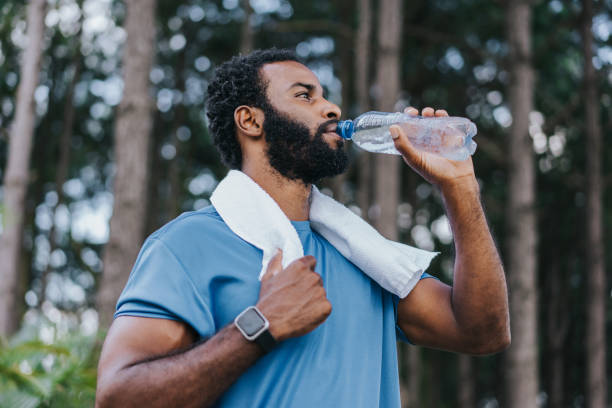
The Science of Hydration
Water is the most vital nutrient for the human body. It makes up about 60% of your body weight and is involved in virtually every bodily function. During exercise, your body loses water through sweat as it works to cool itself down. This loss of water can have a significant impact on your performance and health if not properly managed.
Water is essential for:
- Regulating body temperature: Sweat production helps to cool the body down, especially during intense physical activity.
- Lubricating joints: Proper hydration ensures that your joints remain lubricated, reducing the risk of injury.
- Transporting nutrients: Water is a key component of blood, which transports oxygen and essential nutrients to your muscles.
- Removing waste: Hydration aids in the elimination of waste products through urine and sweat.
- Maintaining electrolyte balance: Electrolytes, such as sodium, potassium, and chloride, are minerals that help maintain fluid balance, nerve function, and muscle contractions.
The Role of Hydration During Exercise
When you exercise, your body temperature rises, and to prevent overheating, your body sweats. Sweat is primarily composed of water, but it also contains electrolytes, such as sodium and potassium, which are crucial for muscle function and overall bodily health. As you lose these fluids and electrolytes, your blood volume decreases, making it harder for your heart to pump blood efficiently. This can lead to a decrease in your exercise performance, increased fatigue, and in severe cases, heat-related illnesses like heat exhaustion or heat stroke.
Dehydration can cause:
- Decreased endurance: Even a small loss of fluids can lead to a significant drop in performance.
- Muscle cramps: Lack of water and electrolytes can cause muscles to cramp or spasm.
- Dizziness and confusion: Severe dehydration can impair mental function and lead to dizziness or confusion.
- Increased heart rate: Your heart has to work harder to pump blood, which can lead to an increased heart rate and fatigue.
- Heat-related illnesses: In extreme cases, dehydration can lead to heat exhaustion or heat stroke, both of which require immediate medical attention.
Signs of Dehydration
It’s important to recognize the signs of dehydration so you can take action before it becomes a serious issue. Common signs include:
- Thirst: This is often the first sign that your body needs more water.
- Dark urine: Darker urine is a sign that your body is conserving water because it’s not getting enough.
- Dry mouth and skin: Lack of moisture can cause your mouth and skin to feel dry.
- Fatigue: Dehydration can lead to a feeling of exhaustion, even if you haven’t been exercising for long.
- Dizziness or lightheadedness: This can occur if your blood pressure drops due to dehydration.
- Headache: Dehydration can cause headaches or migraines.
Best Strategies to Stay Hydrated
Now that we understand the importance of hydration, let’s explore the best strategies to stay hydrated during exercise. These tips will help you maintain optimal fluid levels and keep your performance at its peak.
1. Pre-Hydration: Prepare Your Body
Staying hydrated starts before you even begin your workout. Pre-hydration ensures that your body starts off in a hydrated state, reducing the risk of dehydration as you exercise.
- Drink water throughout the day: Make it a habit to drink water consistently throughout the day, not just before your workout. Aim for at least 8-10 glasses (2-2.5 liters) of water daily, more if you are in a hot climate or are very active.
- Hydrate 2-3 hours before exercise: Consume about 16-20 ounces (500-600 ml) of water or a sports drink 2-3 hours before your workout. This gives your body time to absorb the fluids and ensures you start your workout well-hydrated.
- Top up 20-30 minutes before exercise: Drink another 8-10 ounces (250-300 ml) of water about 20-30 minutes before you begin exercising. This helps to ensure your body is fully hydrated and ready to perform.
2. Hydration During Exercise: Maintain Balance
During exercise, it’s crucial to replace the fluids you’re losing through sweat to maintain performance and prevent dehydration.
- Drink regularly during exercise: Aim to drink 7-10 ounces (200-300 ml) of water every 10-20 minutes during your workout. This may vary depending on the intensity of your exercise, the climate, and your individual sweat rate.
- Use sports drinks for prolonged exercise: If you’re exercising for more than an hour, especially in hot or humid conditions, consider using a sports drink that contains electrolytes and carbohydrates. These drinks help replace the sodium, potassium, and other electrolytes lost through sweat and provide a quick source of energy.
- Listen to your body: Thirst is a sign that your body needs more fluids, so don’t ignore it. However, don’t rely solely on thirst to determine when to drink, as it’s possible to become dehydrated before you feel thirsty.
3. Post-Exercise Hydration: Replenish and Recover
After your workout, it’s essential to rehydrate and replace any fluids lost during exercise. This helps with recovery and prepares your body for your next workout.
- Rehydrate immediately after exercise: Drink 16-24 ounces (500-700 ml) of water or a sports drink for every pound (0.5 kg) of body weight lost during exercise. Weighing yourself before and after your workout can help determine how much fluid you need to replace.
- Include electrolytes in your recovery: If you’ve had an intense or long workout, consider consuming a drink or snack that contains electrolytes to replenish those lost through sweat. Coconut water, sports drinks, or even a salty snack can help restore your electrolyte balance.
- Continue hydrating throughout the day: Post-exercise hydration doesn’t stop when you leave the gym. Continue to drink water throughout the day to ensure you’re fully rehydrated and ready for your next workout.
4. Choose the Right Hydration Method
Different forms of hydration work for different people and types of exercise. Here are some options to consider:
- Water: The simplest and most effective form of hydration for most people, especially for shorter or less intense workouts.
- Sports drinks: These are beneficial for prolonged or high-intensity workouts, particularly in hot or humid conditions. They provide both fluids and electrolytes.
- Coconut water: A natural alternative to sports drinks, coconut water contains potassium and other electrolytes, making it a good choice for hydration.
- Electrolyte tablets or powders: These can be added to water for a customizable hydration solution, especially useful if you need to watch your sodium intake or prefer not to consume sugary sports drinks.
- Infused water: Adding fruits, herbs, or vegetables to your water can make it more enjoyable to drink and encourage you to stay hydrated.
5. Hydration for Different Exercise Environments
Your hydration needs may vary depending on where you’re exercising. Different environments can affect your body’s fluid needs, so it’s important to adjust your hydration strategy accordingly.
- Indoor exercise: While you may not feel as thirsty when exercising indoors, especially in a climate-controlled environment, you’re still losing fluids through sweat. Be sure to drink regularly even if you don’t feel overly hot or thirsty.
- Outdoor exercise in hot weather: When exercising in the heat, your body loses fluids more rapidly, and the risk of dehydration increases. Increase your fluid intake and consider using a sports drink to replace electrolytes. Wearing light, breathable clothing can also help keep your body temperature down.
- Cold weather exercise: It’s easy to forget about hydration in cold weather, but your body still needs fluids. Cold air can be dehydrating, especially when breathing heavily during exercise. Be sure to hydrate before, during, and after your workout, even if you don’t feel as thirsty.
- High-altitude exercise: At higher altitudes, the air is drier, and you lose more fluids through respiration. Increase your water intake and be mindful of the increased risk of dehydration.
6. Hydration for Different Types of Exercise
Different types of exercise place different demands on your body, which can affect your hydration needs.
- Endurance exercise: Long-distance running, cycling, or swimming requires careful hydration management. Start well-hydrated, drink regularly during the activity, and use sports drinks to replace electrolytes and provide energy.
- High-intensity interval training (HIIT): HIIT can cause you to sweat profusely in a short amount of time. Drink water before, during breaks, and after the workout to stay hydrated.
- Strength training: While strength training may not cause you to sweat as much as cardio, it’s still important to stay hydrated. Water helps transport nutrients to your muscles and removes waste products from them.
- Yoga and Pilates: Even though these activities may not be as physically intense, staying hydrated is important for maintaining flexibility and preventing cramps. Drink water before and after your session, and keep a water bottle nearby during longer classes.
The Consequences of Dehydration
Understanding the potential consequences of dehydration can underscore the importance of staying hydrated. Dehydration can range from mild to severe, with symptoms and risks that increase as dehydration worsens.
Mild Dehydration
- Thirst: Your body’s initial signal that it needs more water.
- Dry mouth and throat: A lack of moisture can lead to discomfort in your mouth and throat.
- Decreased urine output: Your body tries to conserve water, resulting in less frequent and darker urine.
- Fatigue: Dehydration can make you feel tired and sluggish, even with minimal physical exertion.
- Headache: A common symptom of mild dehydration.
Moderate Dehydration
- Increased heart rate: As your blood volume decreases, your heart has to work harder to circulate blood, leading to an increased heart rate.
- Dizziness or lightheadedness: A drop in blood pressure due to dehydration can cause dizziness, especially when standing up quickly.
- Muscle cramps: Dehydration and electrolyte imbalance can lead to painful muscle cramps, particularly in hot conditions.
- Reduced exercise performance: Dehydration impairs your body’s ability to regulate temperature and transport oxygen to your muscles, leading to decreased endurance and strength.
Severe Dehydration
- Heat exhaustion: A condition characterized by heavy sweating, weakness, dizziness, nausea, and sometimes fainting. It requires immediate hydration and cooling measures.
- Heat stroke: A life-threatening condition that occurs when your body’s cooling mechanisms fail, leading to a rapid increase in body temperature. Symptoms include confusion, rapid pulse, hot and dry skin, and loss of consciousness. Immediate medical attention is necessary.
- Kidney damage: Prolonged dehydration can lead to kidney stones or even kidney failure, as your kidneys struggle to filter waste products without adequate water.
- Shock: In extreme cases, severe dehydration can lead to hypovolemic shock, a dangerous drop in blood volume that can result in organ failure and death.
Special Considerations
While the general principles of hydration apply to most people, there are some special considerations to keep in mind.
Individual Sweat Rates
Everyone sweats at a different rate, which means your hydration needs may differ from someone else’s. Factors like genetics, fitness level, exercise intensity, and environment can all influence how much you sweat. To get a better idea of your individual hydration needs:
- Monitor your weight: Weigh yourself before and after exercise. A loss of more than 2% of your body weight indicates dehydration, and you should aim to replace those fluids.
- Pay attention to urine color: Light yellow urine generally indicates good hydration, while dark yellow or amber suggests dehydration.
- Keep track of how much you sweat: If you know you’re a heavy sweater, you’ll need to drink more fluids before, during, and after exercise.
Gender Differences
Men and women may have different hydration needs due to differences in body composition and sweat rates. Women tend to have a higher percentage of body fat and may sweat less than men, but they still need to be mindful of their fluid intake, especially during exercise.
- Men: May need to consume more fluids due to higher muscle mass and greater sweat rates.
- Women: Should be particularly mindful of hydration during menstruation, as fluid retention and electrolyte balance can fluctuate.
Age and Hydration
As you age, your body’s ability to conserve water and sense thirst diminishes. Older adults are also more likely to take medications that can increase the risk of dehydration.
- Older adults: Should make a conscious effort to drink water regularly, even if they don’t feel thirsty. Including foods with high water content, such as fruits and vegetables, can also help.
- Children and adolescents: May need to be reminded to drink water, especially during physical activity. Children are more susceptible to heat-related illnesses and should be encouraged to take regular water breaks during exercise.
Hydration is a critical aspect of exercise that should never be overlooked. By staying hydrated, you can enhance your performance, speed up recovery, and reduce the risk of injury and heat-related illnesses. Remember that hydration is not just about drinking water; it’s about maintaining the right balance of fluids and electrolytes before, during, and after exercise.
Whether you’re working out indoors, outdoors, in hot weather, or cold, always be mindful of your body’s hydration needs. Listen to your body, drink regularly, and choose the right hydration strategy that suits your activity level and environment. By following these guidelines, you’ll ensure that your body stays well-hydrated and ready to perform at its best.
As a fitness trainer, I encourage all my clients to prioritize hydration as part of their overall fitness regimen. It’s a simple yet powerful way to enhance your workouts, support your health, and achieve your fitness goals. So, grab that water bottle, stay hydrated, and keep pushing toward your fitness milestones!
Staff Writer; Nina Brown
Questions? Feel free to email me at; NinaB@BlackFitness101.com.








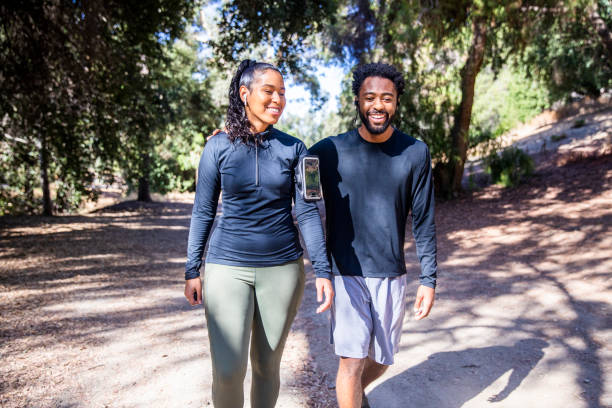
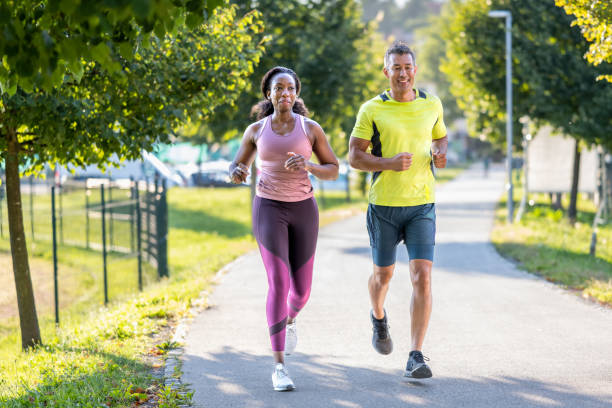
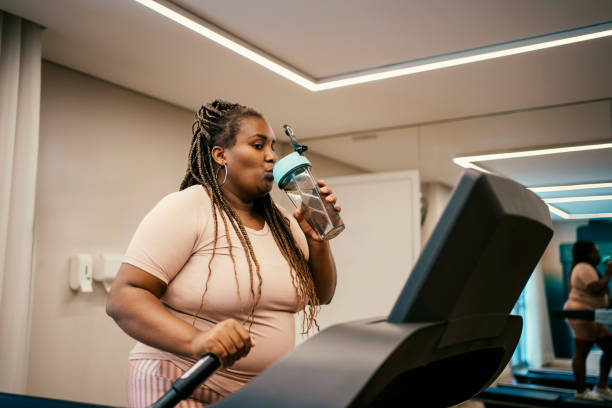
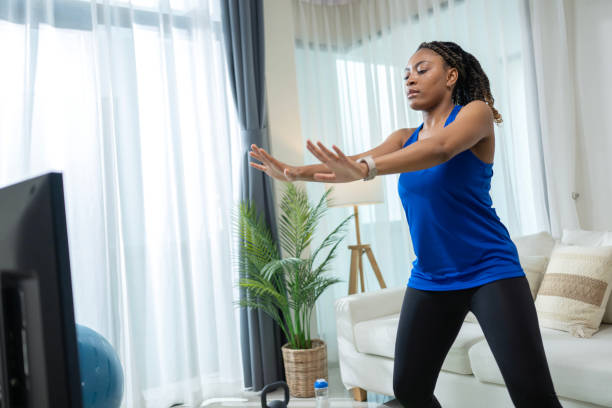
Leave a Reply